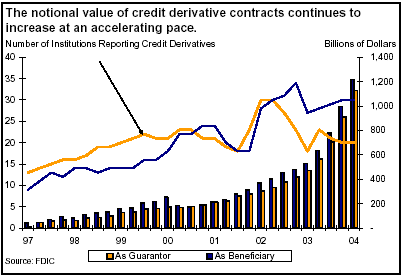Last warning: 10 years to save world
January 28, 2007 (The Sunday Times)
Scientists say rising greenhouses gases will make climate change unstoppable in a decade
THE world has just 10 years to reverse surging greenhouse gas emissions or risk runaway climate change that could make many parts of the planet uninhabitable.
The stark warning comes from scientists who are working on the final draft of a new report by the Intergovernmental Panel on Climate Change (IPCC).
The report, due to be published this week, will draw together the work of thousands of scientists from around the world who have been studying changes in the world’s climate and predicting how they might accelerate.
They conclude that unless mankind rapidly stabilises greenhouse gas emissions and starts reducing them, it will have little chance of keeping global warming within manageable limits.
AntiSpin: I don't know about you, but I'm looking forward to seeing some serious science on this topic. Al Gore's comedy on the subject didn't do it for me.
Intuitively, it makes sense that if you raise global CO2 levels several times higher than in the past few thousands years and leave them there, you're going to break something, and if you get whacked out weather, you have positive correlation but you don't have causation. I hope this report is definitive on both the timing and the expected results. Be good to put this in either the list of items to discuss and plan for or dump into the doomer heap along with Y2K.
____
Still roaring
The Economist
China's economy grew by a dramatic 10.7% last year, but this year will be slightly quieter
ROSS PEROT, a populist American politician, predicted in the early 1990s that a trade pact with Mexico would create a ‘‘giant sucking sound’’ as jobs headed south. Instead, America experienced full employment. So giant-sucking-sound detectors turned to China. In time, China became the workshop of the world, although by then America had long hollowed out much of its manufacturing.
Now there really is a giant sucking sound—not one made by the flight of jobs, but by China ferociously hoovering up commodities and raw materials. Although it accounts for roughly 4% of global GDP (measured at market exchange rates), China consumes 30% of the world’s supply of minerals and other raw materials. This time around, the world has not only heard the sucking sound, but has also felt its effects, as the prices of commodities such as iron ore, copper and zinc have soared, doubling or tripling in just a couple of years.
If China does slow down, obviously the commodities sucker will slow down with it. Prices will fall. Jim Rogers told us that set backs like that are typical in commodity bull markets. No sweat. They'll be back.
____
Stark picture from Rocky Mountain News of a U.S. Marine's coffin being loaded into the baggage section of a passanger plane as the passengers look on. When's the last time you saw any evidence of the wars in Iraq and Afghanistan, other than on TV or the Internet? How do you experience the war economically? Higher taxes? More inflation? Nope. Just more government jobs and a housing bubble. This must be the most peculiarly "free" war any nation's citizens have ever experienced, at least for now. But eventually we're going to have to "grow our way" out of debt, as the optimists say.
____
One-third of students in Texas don't graduate
Associated PressOne out of three Texas students don't graduate, and more students drop out than finish high school in the state's largest cities, according to education experts.
Statewide, more than 2.5 million students have dropped out of Texas high schools in the last 20 years, and each graduating class loses about 120,000 students from freshman year to senior year, according to the San Antonio-based Intercultural Development Research Association.
The research group says more than half of students in Texas' largest cities drop out. The dropout rate among blacks, Hispanics and low-income students is about 60 percent, according to the Center for Education at Rice University.
The statewide dropout rate is about 33 percent — or 20 points higher than what the Texas Education Agency reports.
If we're counting on young people and immigrants to pay our social security, looks like we can scratch Texas off the list of likely major contributors. At least they can get jobs that don't require a high school education, such as running Ford and GM.
_____
Behind Ford's scary $12.7 billion loss
Alex Taylor III - FORTUNE MagazineThe Big Three are hemorrhaging money, and struggling to stay competitive with foreign rivals. Fortune's Alex Taylor crunches the numbers.
NEW YORK (Fortune) -- An enormous gap still separates the performance of Detroit automakers from their foreign competitors - and it isn't all their fault.
The stupefying $12.7 billion loss that Ford Motor Co. reported Thursday for 2006 comes one year after General Motors' equally horrendous $10.6 billion loss for 2005.
But for all the bad decisions these companies have made by not listening to their customers, they aren't entirely to blame. Structural inequities between the U.S. and Japan - notably in labor costs and currency - account for a big chunk of Detroit's problems.
The article is almost too painful to read. How, you might ask, did Toyota and other Japanese car companies manage to out-compete the U.S. while the U.S. was supposedly "booming" and Japan suffered through it's "lost decade" of "deflation"? I wonder what it was like being a politician in Japan during the years they shoveled manufacturing jobs to the U.S. Maybe we'll be lucky enough to get a lost decade, too.
January 28, 2007 (The Sunday Times)
Scientists say rising greenhouses gases will make climate change unstoppable in a decade
THE world has just 10 years to reverse surging greenhouse gas emissions or risk runaway climate change that could make many parts of the planet uninhabitable.
The stark warning comes from scientists who are working on the final draft of a new report by the Intergovernmental Panel on Climate Change (IPCC).
The report, due to be published this week, will draw together the work of thousands of scientists from around the world who have been studying changes in the world’s climate and predicting how they might accelerate.
They conclude that unless mankind rapidly stabilises greenhouse gas emissions and starts reducing them, it will have little chance of keeping global warming within manageable limits.
AntiSpin: I don't know about you, but I'm looking forward to seeing some serious science on this topic. Al Gore's comedy on the subject didn't do it for me.
Intuitively, it makes sense that if you raise global CO2 levels several times higher than in the past few thousands years and leave them there, you're going to break something, and if you get whacked out weather, you have positive correlation but you don't have causation. I hope this report is definitive on both the timing and the expected results. Be good to put this in either the list of items to discuss and plan for or dump into the doomer heap along with Y2K.
____
Still roaring
The Economist
China's economy grew by a dramatic 10.7% last year, but this year will be slightly quieter
ROSS PEROT, a populist American politician, predicted in the early 1990s that a trade pact with Mexico would create a ‘‘giant sucking sound’’ as jobs headed south. Instead, America experienced full employment. So giant-sucking-sound detectors turned to China. In time, China became the workshop of the world, although by then America had long hollowed out much of its manufacturing.
Now there really is a giant sucking sound—not one made by the flight of jobs, but by China ferociously hoovering up commodities and raw materials. Although it accounts for roughly 4% of global GDP (measured at market exchange rates), China consumes 30% of the world’s supply of minerals and other raw materials. This time around, the world has not only heard the sucking sound, but has also felt its effects, as the prices of commodities such as iron ore, copper and zinc have soared, doubling or tripling in just a couple of years.
If China does slow down, obviously the commodities sucker will slow down with it. Prices will fall. Jim Rogers told us that set backs like that are typical in commodity bull markets. No sweat. They'll be back.
____
 |
____
One-third of students in Texas don't graduate
Associated PressOne out of three Texas students don't graduate, and more students drop out than finish high school in the state's largest cities, according to education experts.
Statewide, more than 2.5 million students have dropped out of Texas high schools in the last 20 years, and each graduating class loses about 120,000 students from freshman year to senior year, according to the San Antonio-based Intercultural Development Research Association.
The research group says more than half of students in Texas' largest cities drop out. The dropout rate among blacks, Hispanics and low-income students is about 60 percent, according to the Center for Education at Rice University.
The statewide dropout rate is about 33 percent — or 20 points higher than what the Texas Education Agency reports.
If we're counting on young people and immigrants to pay our social security, looks like we can scratch Texas off the list of likely major contributors. At least they can get jobs that don't require a high school education, such as running Ford and GM.
_____
Behind Ford's scary $12.7 billion loss
Alex Taylor III - FORTUNE MagazineThe Big Three are hemorrhaging money, and struggling to stay competitive with foreign rivals. Fortune's Alex Taylor crunches the numbers.
NEW YORK (Fortune) -- An enormous gap still separates the performance of Detroit automakers from their foreign competitors - and it isn't all their fault.
The stupefying $12.7 billion loss that Ford Motor Co. reported Thursday for 2006 comes one year after General Motors' equally horrendous $10.6 billion loss for 2005.
But for all the bad decisions these companies have made by not listening to their customers, they aren't entirely to blame. Structural inequities between the U.S. and Japan - notably in labor costs and currency - account for a big chunk of Detroit's problems.
The article is almost too painful to read. How, you might ask, did Toyota and other Japanese car companies manage to out-compete the U.S. while the U.S. was supposedly "booming" and Japan suffered through it's "lost decade" of "deflation"? I wonder what it was like being a politician in Japan during the years they shoveled manufacturing jobs to the U.S. Maybe we'll be lucky enough to get a lost decade, too.


Comment